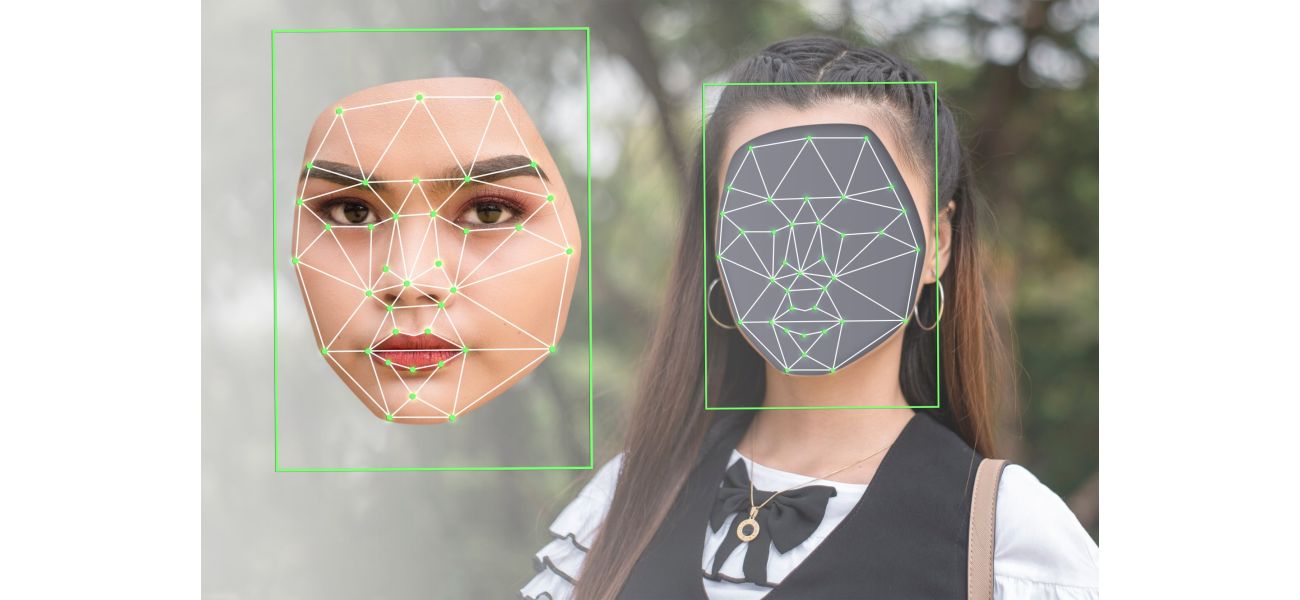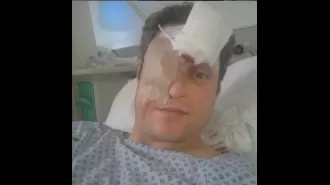Friend's deepfake porn of me led me to push for its illegality.
Woman fights to make viewing deepfake porn videos, created and shared by her best friend, a criminal offense.
November 3rd 2024.

A woman is advocating for changes in the law surrounding image-based abuse after becoming a victim of deepfaked porn. She shares her story of how her best friend made and distributed deepfake videos of her, leading to her campaign to make it illegal to view these images.
It all started in 2019 when 'Jodie' began noticing her face appearing on various dating apps. She initially tried to ignore it, but soon the pictures started popping up on Twitter with solicitation messages for sex. Later, the images even made their way onto revenge porn websites, a common platform for men to post intimate pictures of their ex-partners and encourage others to harass them.
Jodie went to the police seeking help, but she was told that nothing could be done because she didn't know who was responsible for creating and sharing the images. She was horrified when she discovered that her face had been superimposed onto pornographic images, and the situation only got worse when she received an anonymous email in March 2021. The email alerted her to a website that featured deepfaked porn, where AI was used to create explicit images and videos of her.
The discovery of the deepfakes left Jodie feeling violated and traumatized. She confided in her family, friends, and boyfriend and eventually discovered that her best friend, Alex Woolf, was the culprit. Jodie reported the incident to the police, but unfortunately, the creation, distribution, and solicitation of deepfake images were not considered a crime. In August 2021, Woolf was found guilty of sending grossly offensive messages over a public electronic communications network and was given a suspended prison sentence.
Despite the fact that Woolf solicited deepfaked sexual images of Jodie, he was not charged for that specific crime because it is not currently recognized as illegal. This was a devastating realization for Jodie, who was determined to prevent this from happening to anyone else. She launched a petition, in partnership with various organizations, to push for tougher penalties for those who create, distribute, and solicit deepfake images.
Jodie's campaign gained even more urgency when it was announced in April 2021 that a new law would be introduced to address deepfake image abuse. However, with a change in government, the future of this bill is uncertain. Professor Clare McGlynn, a supporter of the campaign, explains the current legal standpoint and the need for a creation offense to be included in the law.
Jodie believes that deepfake is the next form of violence against women and girls and that the current legal loopholes allow perpetrators to get away with their actions without facing real consequences. She is determined to bring awareness to this issue and advocate for harsher penalties for those involved in deepfake activity. Jodie's experiences have left her filled with rage, which she channels into her activism and her campaign to protect others from this form of abuse. She hopes that her efforts will lead to a more comprehensive and effective approach to tackling image-based abuse.
It all started in 2019 when 'Jodie' began noticing her face appearing on various dating apps. She initially tried to ignore it, but soon the pictures started popping up on Twitter with solicitation messages for sex. Later, the images even made their way onto revenge porn websites, a common platform for men to post intimate pictures of their ex-partners and encourage others to harass them.
Jodie went to the police seeking help, but she was told that nothing could be done because she didn't know who was responsible for creating and sharing the images. She was horrified when she discovered that her face had been superimposed onto pornographic images, and the situation only got worse when she received an anonymous email in March 2021. The email alerted her to a website that featured deepfaked porn, where AI was used to create explicit images and videos of her.
The discovery of the deepfakes left Jodie feeling violated and traumatized. She confided in her family, friends, and boyfriend and eventually discovered that her best friend, Alex Woolf, was the culprit. Jodie reported the incident to the police, but unfortunately, the creation, distribution, and solicitation of deepfake images were not considered a crime. In August 2021, Woolf was found guilty of sending grossly offensive messages over a public electronic communications network and was given a suspended prison sentence.
Despite the fact that Woolf solicited deepfaked sexual images of Jodie, he was not charged for that specific crime because it is not currently recognized as illegal. This was a devastating realization for Jodie, who was determined to prevent this from happening to anyone else. She launched a petition, in partnership with various organizations, to push for tougher penalties for those who create, distribute, and solicit deepfake images.
Jodie's campaign gained even more urgency when it was announced in April 2021 that a new law would be introduced to address deepfake image abuse. However, with a change in government, the future of this bill is uncertain. Professor Clare McGlynn, a supporter of the campaign, explains the current legal standpoint and the need for a creation offense to be included in the law.
Jodie believes that deepfake is the next form of violence against women and girls and that the current legal loopholes allow perpetrators to get away with their actions without facing real consequences. She is determined to bring awareness to this issue and advocate for harsher penalties for those involved in deepfake activity. Jodie's experiences have left her filled with rage, which she channels into her activism and her campaign to protect others from this form of abuse. She hopes that her efforts will lead to a more comprehensive and effective approach to tackling image-based abuse.
[This article has been trending online recently and has been generated with AI. Your feed is customized.]
[Generative AI is experimental.]
0
0
Submit Comment





